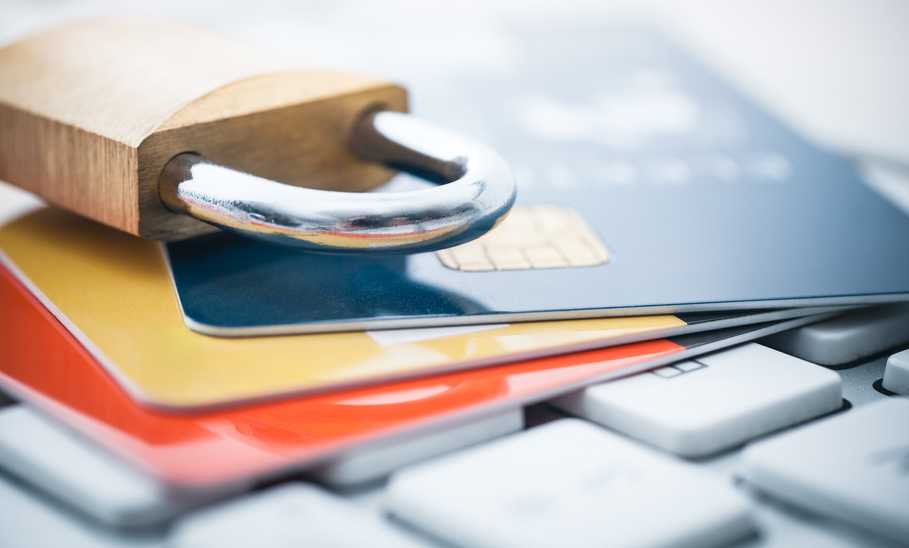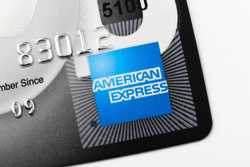What is a Secured Credit Card and How Does it Work?

Our evaluations and opinions are not influenced by our advertising relationships, but we may earn a commission from our partners’ links. This content is created by TIME Stamped, under TIME’s direction and produced in accordance with TIME’s editorial guidelines and overseen by TIME’s editorial staff. Learn more about it.
A secured credit card requires a cash security deposit to open an account. The deposit lowers the credit card issuer's risk: If you miss a payment, the issuer uses your deposit to cover the bill. Secured credit cards are geared toward consumers with bad credit or no credit who may otherwise have trouble qualifying for an unsecured credit card that doesn't require a deposit.
Your security deposit usually equals your credit limit. For example, if you deposit $200, your credit limit will be $200. Using the card responsibly over time can boost your credit and help you eventually qualify for an unsecured card. Some of the best secured credit cards automatically upgrade your account to an unsecured card after you’ve made six to 12 months of on-time payments.
Secured credit cards are ideal for borrowers with poor or limited credit histories. The card issuers automatically report to the three major credit bureaus, so responsible card use can help you establish and build your credit history and improve your credit score.
With all secured credit cards, you pay a deposit, use the card for purchases and bills, build credit, and, if all goes well, get your deposit back and upgrade to an unsecured credit card. Still, secured credit cards come with various features and benefits. Here are a few examples to consider:
The card_name has annual_fees annual fee and foreign_transaction_fee foreign transaction fees, and a security deposit as low as $49 gets you a $200 credit line.
The card_name doesn't have a minimum security deposit—but you need a Chime checking account with a direct deposit of $200+ to qualify.
The card_name lets you earn an unlimited 1.5% cash back on all card purchases with no foreign transaction fees.
The card_name offers a low reg_apr,reg_apr_type with no penalty rate. However, be aware that there's no grace period on this account, so interest accrues as soon as you make a purchase.
The OpenSky® Secured Visa® Credit Card has a simple four-step application process with no credit check.
With some cards, your credit limit equals your security deposit; others offer a higher credit limit than your deposit. You can generally deposit more to raise your credit line (up to the card's maximum limit).
Once you're approved and pay a security deposit, a secured credit card works much like an unsecured one:
Secured credit cards often come with annual and late payment fees; some also charge application and processing fees. Most cards have an interest-free grace period starting on the day your statement is generated and ending on your payment due date. In other words, you won't owe any interest if you pay your balance in full each month. However, not all cards offer a grace period, so interest accrues starting on the transaction date. Be sure to read the credit card agreement so you know what to expect.
When you use a secured card responsibly, you can earn back your deposit and upgrade to an unsecured card. You can get your deposit back anytime if you close the account in good standing.
Secured credit cards offer numerous benefits. Most importantly, a secured credit card helps you:
Many credit card issuers offer both secured and unsecured cards. These issuers may automatically upgrade you to an unsecured card (or invite you to request a transfer) if you use the secured card responsibly for six to 12 months. Transferring from a secured card to an unsecured card with the same issuer is better for your credit score because it doesn't trigger a hard inquiry.
Even if you must apply for a new card, your newly improved credit can help you qualify for a card with lower rates, better fees, and more rewards and other perks.
To reap the credit-building rewards of a secured credit card, follow these three habits:
Many card issuers will approve you for an unsecured credit card once you demonstrate six to 12 months of good habits.
Once you research secured credit cards and find one you like, you can fill out an application on the card issuer's website, over the phone, through the mail, or in person if you can visit the issuer’s local branch. Be ready to provide your full legal name, date of birth, address, Social Security number, annual income, and housing and employment details. Card issuers must send you a notice of approval or denial within 30 days of receiving your application. Still, many let you know within a few minutes of submitting an online application.
When you're ready to move on, call the number on the back of the card and ask the representative to close the account. If it's in good standing, your security deposit will be returned (ask about the timeline so you know what to expect). It's always a good idea to destroy old credit cards to lower the risk of fraud and identity theft.
After managing your credit responsibly over time, you can upgrade from a secured to an unsecured card. This process happens automatically with some secured credit cards. With others, you may have to apply for an unsecured credit card and then cancel the secured card once you're approved.
Secured credit cards are an excellent way to establish or build credit and improve your credit score, but it takes time and effort. Good financial habits are essential—and that means spending responsibly, making on-time payments, and paying off your balance in full each month (or at least making the minimum payment).
Remember that having a credit card doesn't build your credit or boost your credit score. Using the card responsibly is what makes the difference and helps you qualify for better rates and terms down the road.
There are two broad types of credit cards: unsecured and secured. Unsecured credit cards let you charge up to your credit limit, pay down some (or all) the balance, and charge up to the limit again. With a secured credit card, you put down a security deposit as collateral and qualify for a credit line based on that amount.
A secured credit card involves borrowing and repaying money, so it can help you build credit (of course, it can damage your credit if you don't use it responsibly). With a prepaid debit card, you spend your own money by loading cash onto the card and then using it for purchases. In other words, you don't borrow and repay money with a prepaid debit card—so it doesn't affect your credit score. For this reason, consumers often use prepaid debit cards primarily for budgeting and convenience.
You might need to provide your card's security code or CVV (card verification value) when making a purchase online or by phone. The number appears on the back of most credit cards to the right of the card number. If you have an American Express card, the code appears next to the card number on the card's front.
The information presented here is created by TIME Stamped and overseen by TIME editorial staff. To learn more, see our About Us page.



